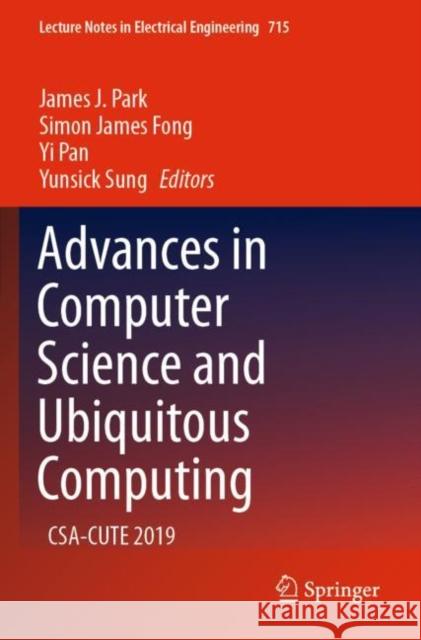Advances in Computer Science and Ubiquitous Computing: Csa-Cute 2019 » książka
topmenu
Advances in Computer Science and Ubiquitous Computing: Csa-Cute 2019
ISBN-13: 9789811593451 / Angielski / Miękka / 2022
Advances in Computer Science and Ubiquitous Computing: Csa-Cute 2019
ISBN-13: 9789811593451 / Angielski / Miękka / 2022
cena 603,81
(netto: 575,06 VAT: 5%)
Najniższa cena z 30 dni: 578,30
(netto: 575,06 VAT: 5%)
Najniższa cena z 30 dni: 578,30
Termin realizacji zamówienia:
ok. 22 dni roboczych.
ok. 22 dni roboczych.
Darmowa dostawa!
This book presents the combined proceedings of the 11th International Conference on Computer Science and its Applications (CSA 2019) and the 14th KIPS International Conference on Ubiquitous Information Technologies and Applications (CUTE 2019), both held in Macau, China, December 18–20, 2019.
The aim of these two meetings was to promote discussion and interaction among academics, researchers and professionals in the field of ubiquitous computing technologies.
These proceedings reflect the state of the art in the development of computational methods, involving theory, algorithms, numerical simulation, error and uncertainty analysis and novel applications of new processing techniques in engineering, science and other disciplines related to ubiquitous computing.











